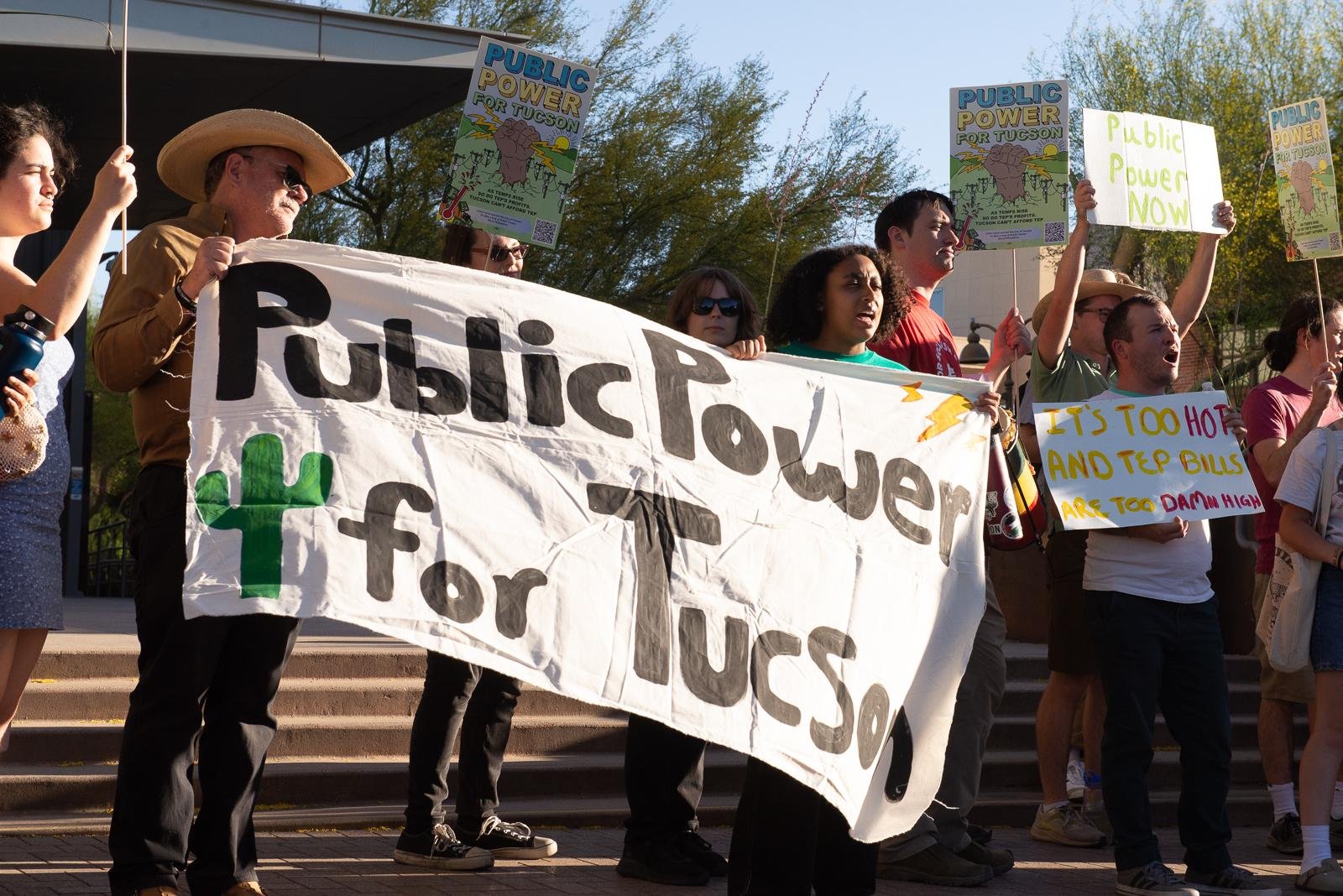Business
Tucson Seeks to Revamp TEP Franchise Deal Amid Surge in Public Power Advocacy

Tucson is poised for a potential special election this November, where residents may vote on a franchise agreement with Tucson Electric Power (TEP). Meanwhile, advocates for public ownership of utilities are gaining momentum.
The City Council unanimously approved a resolution on Tuesday to schedule this election, contingent upon the successful negotiation of the agreement by July 1, following Arizona law.
Mayor Regina Romero emphasized the community’s desire for a franchise agreement that supports climate initiatives while ensuring affordable energy. “Tucsonans want energy policies aligned with our climate goals,” she stated.
The anticipated franchise agreement permits TEP to utilize city property, including alleyways, for infrastructure installations in exchange for a fee. Currently, TEP customers contribute a 2.25 percent franchise fee as part of their monthly bills in Tucson, while South Tucson customers pay 2 percent.
This franchise agreement, initially approved by voters in 2000, is set to expire in 2026. A previous attempt to renew it was rejected by voters in 2023.
TEP spokesperson Joe Salkowski expressed hope for a favorable agreement, noting that utility customers might face higher bills without the franchise. “Franchise agreements ultimately lower costs for our customers,” he said.
Advocacy for a public utility has been growing, with around 3,400 residents signing a petition urging a shift from TEP to a publicly owned utility. TEP, owned by Fortis, a Canadian company, draws criticism for its profit margins impacting local electricity bills.
On Tuesday, approximately 50 residents rallied outside City Hall to support public power. Speakers highlighted the financial burden of private utility companies and advocated for a system that caters to the community’s needs. “Public utilities tend to be cheaper and more reliable,” stated Lee Ziesche of the Tucson Democratic Socialists of America.
Comparative studies suggest that publicly owned utilities can cost consumers up to 13 percent less than their private counterparts. An analysis indicates that the City of Tucson would require about $820 million to establish its own electric utility.
Despite Arizona having slightly lower average electricity rates than the national average, the average monthly bill in the state reached $148.40 in 2023, making it the second highest in the U.S.
TEP charges range from 12.64 to 15.73 cents per kilowatt-hour, exceeding the state’s average but remaining lower than the national average of 18.1 cents.
Councilmember Paul Cunningham voiced his concerns regarding the franchise agreement, stressing the need for voter support. He proposed a strategy that would see the city gradually purchase sections of the electric grid while maintaining the current franchise.
Final results from an upcoming study on the feasibility of a public power option are expected in May. This information could greatly influence the upcoming negotiations and the future of Tucson’s energy landscape.


















